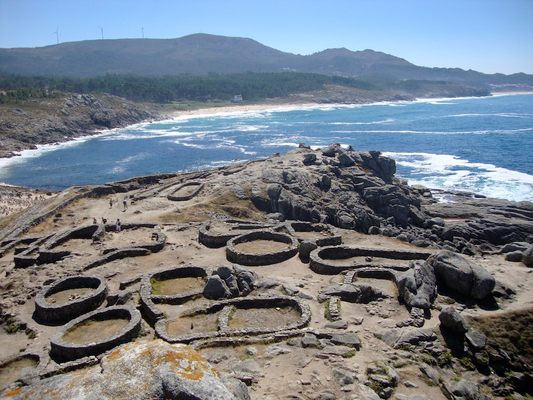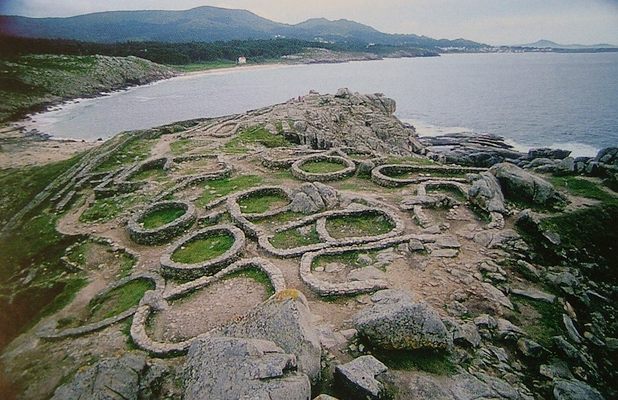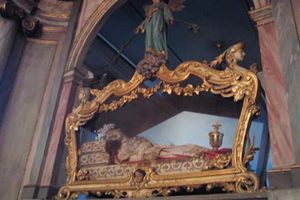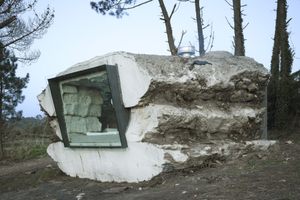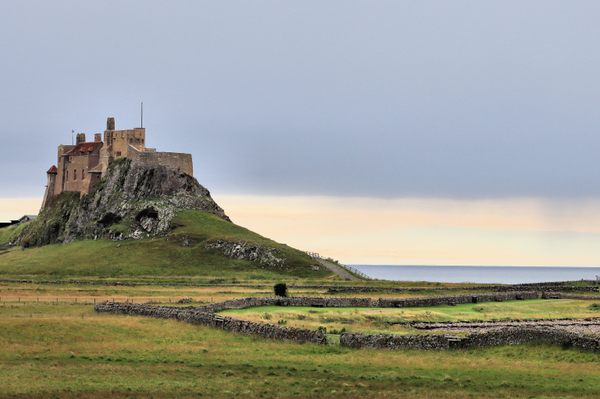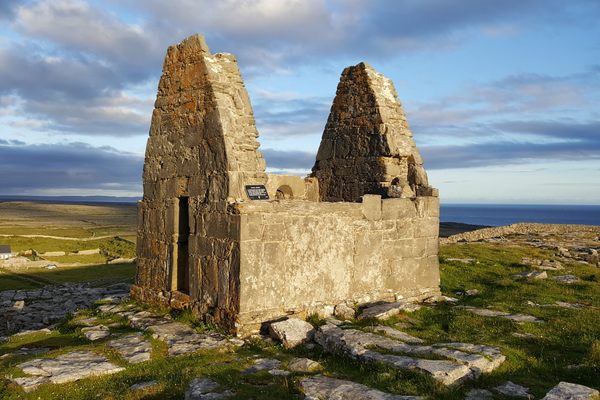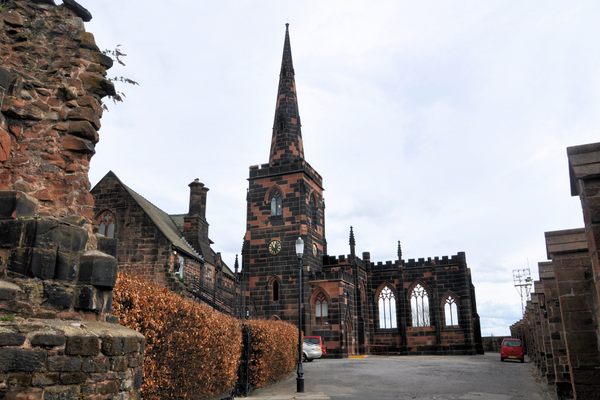About
The ruins of this ancient settlement exist only as a series of circular foundations, but what a view they had!
A completely excavated seaside example of a settlement dating from the first century B.C. to the first century A.D. (the Iberian Iron Age/Galician Castro Culture), it consists of 20 circular or oval stone houses within a double defensive wall. The settlement was not positioned in this isolated coastal spot to fend off attacks from the sea, but rather to defend itself from attacks from the mainland.
A popular myth claims that these castros were inhabited by the "Praestamarcos" tribe and that it is actually on the "Vicu Sapcorum," an ancient Roman road that traversed the "Barbanza" hills, and was called "Per Loca Martimia." Whether this is actually true is hard to say, but it is claimed that people lived in this desolate spot for many centuries up until the arrival of the "Suevians."
It is difficult to determine what the site once looked like since there is no evidence of upper walls, roofs, windows, or even doors. Some hypothesize that this was a storage settlement but most archaeologists posit that it was inhabited year-round since there is clear evidence of shellfish gathering and fishing. There is also a furnace located in the northern section which was probably used for smelting tin, gold, copper, and iron mined in the nearby mountains. The settlement could have been completely self-sufficient, except that no facilities to store fresh water have been found.
Related Tags
Know Before You Go
Requires a hike along the beaches-no direct access but visible from all nearby beaches about halfway down the Porto do Son coastline-attached to mainline through a sandy stretch. Alternatively, you can take the C550 and park at the restaurant near the beginning of the path.
Community Contributors
Added By
Published
April 25, 2013
